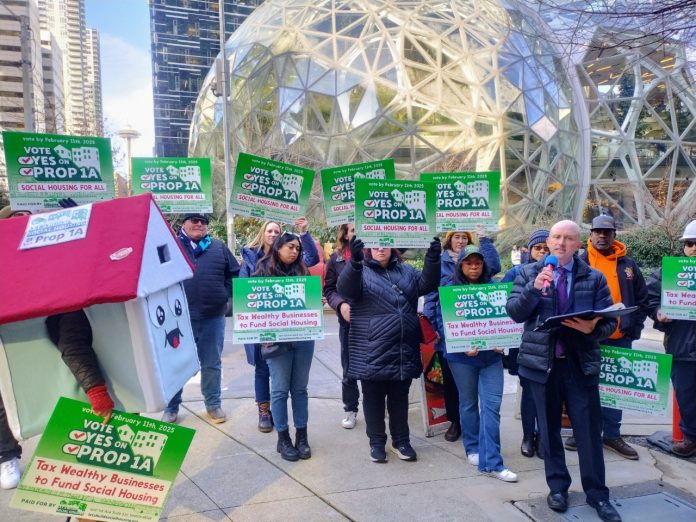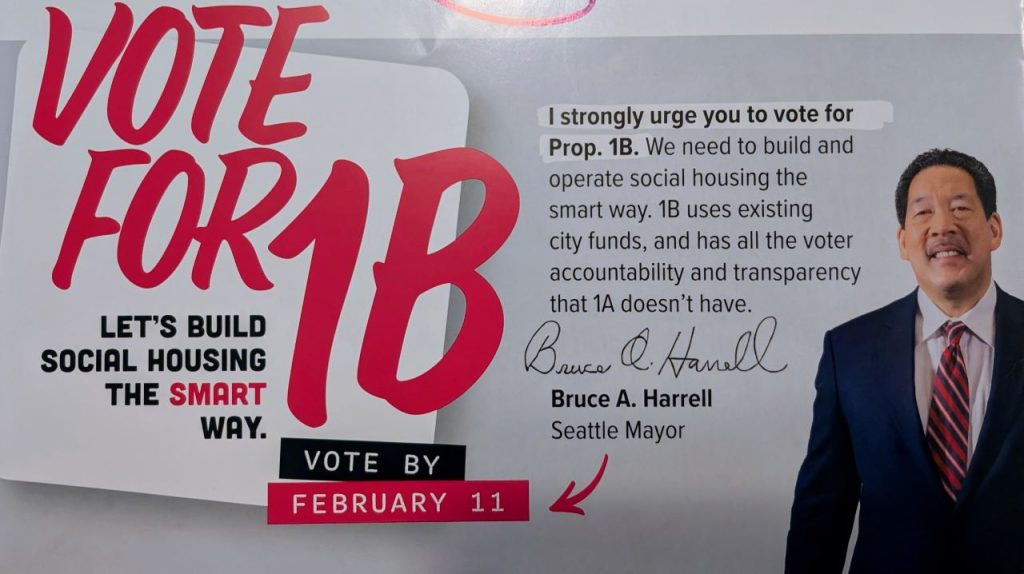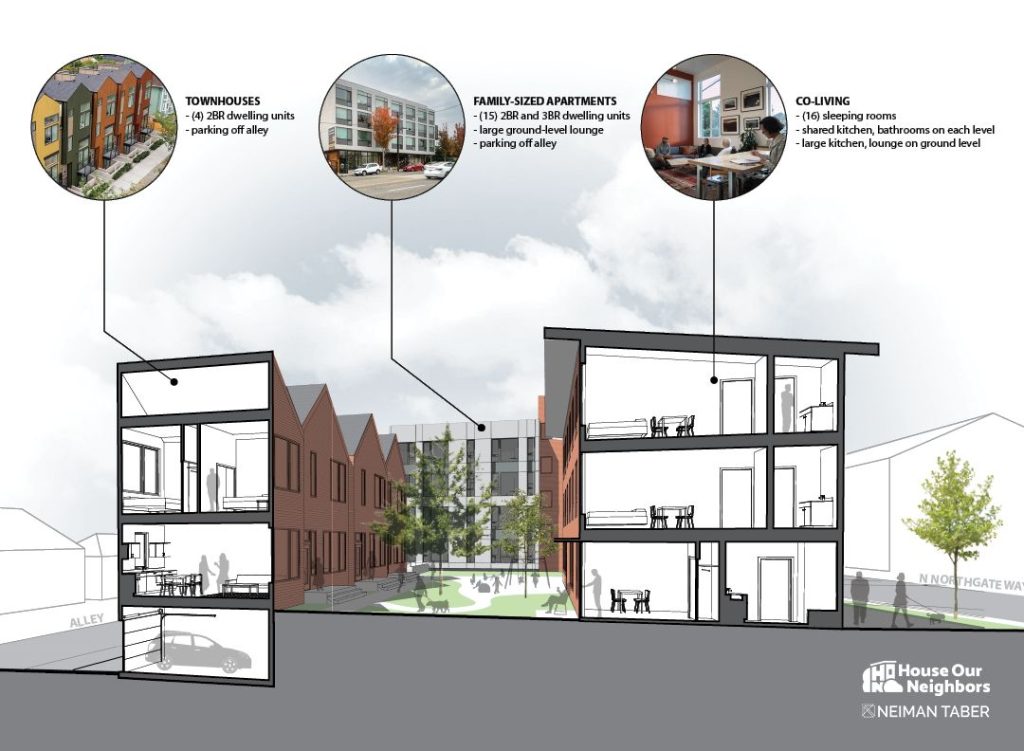
The Urbanist has seen enough; Proposition 1A has won the special election to decide the fate of social housing in Seattle. After leading by 15 points on election night, Proposition 1A continued to expand its lead in subsequent ballot counts, reaching a 20-point advantage on Thursday.
Update: The margin reached 24.6 points after Friday’s count, as late returns trend toward social housing advocates. By Tuesday, February 18, the lead reached 26 points, which seems to be where the race is settling out.
🚨 Social housing ballot count update 🚨 Prop 1A's margin keeps growing. It's at 62.3% to 37.7% today, opening up a 40,000-vote, 24.5-point lead. The Urbanist called the election for Prop 1A yesterday, and @houseourneighbors.bsky.social also declared victory. www.theurbanist.org/2025/02/13/s…
— The Urbanist (@theurbanist.org) February 14, 2025 at 3:20 PM
[image or embed]
Rather than let an up-or-down vote for the social housing measure go to the November ballot, the Seattle City Council delayed and placed Proposition 1B on a February special election ballot as a competing measure at the behest of the Seattle Metropolitan Chamber of Commerce. The chamber also crafted ballot titles and language and funded the campaign behind it.
For the chamber and aligned big businesses like Amazon and Microsoft and politicians like Seattle Mayor Bruce Harrell and Seattle Council President Sara Nelson, opposition to new business taxes drove their ill-fated advocacy and aggressive campaign spending, which more than doubled the grassroots opposition.
Proposition 1A will tax businesses on top salaries, raising approximately $53 million annually for social housing via a 5% tax on individual compensation exceeding $1 million annually. Companies who do not compensate individual employees more than $1 million annually would not be subject to the tax.
In contrast, Proposition 1B would repurpose existing Jumpstart payroll tax funds, which are largely dedicated to affordable housing already — just as City leaders did to patch a budget hole and fund their new priorities without raising taxes last fall. Prop 1B would also sunset after five years and only allocate $10 million per year, leaving the Seattle Social Housing Developer with far fewer resources to work with.
Seattle approved the formation of the Seattle Social Housing Developer in a 2023 special election, with the grassroots Initiative 135 winning by a 14-point margin. The Urbanist Elections Committee (on which I serve) endorsed Initiative 135 in 2023 and last year endorsed Proposition 1A, highlighting the opportunity for innovation that the new housing model presented.
Due to rules that require ballot initiatives have a single subject, one single measure could not launch the public development authority and fund it, too. Hence the need to come back with a funding measure.
Unlike traditional affordable housing, the Seattle Social Housing Developer is chartered to create buildings that include both middle-income homes and low-income homes, with the higher rents subsidizing the low-income units offered at lower rents. Advocates hopes this cross subsidy helps defray operating costs and even serves as an ongoing funding source for further social housing creation. The social housing model has proven successful in places like Montgomery County, Maryland and Vienna, Austria.
House Our Neighbors, the grassroots advocacy group behind both Proposition 1A and the earlier ballot measure, noted it was not an easy path to victory, given resistance from many leaders and powerbrokers in Seattle politics. Harrell endorsed Prop 1B and the campaign plastered the mayor’s face on campaign literature.

“We are astounded,” House Our Neighbors wrote in an email to supporters. “The Chamber of Commerce, corporations, Mayor Harrell, and the City Council put up roadblock after roadblock on our journey, but it was no match for our vast coalition and amazing people power!”
The group issued a call to action to tackle the housing crisis.
“Voters have spoken – now is the time for Seattle to take bold, innovative action to meet our housing and homelessness crises,” House Our Neighbors wrote (emphasis original). “We have shown that we can create the changes we want to see, and not wait for those in power to create it for us. We have the power to stand up to the oligarchs and corporations who don’t want to pay a dollar more in taxes to solve the housing crisis affecting the community that foster their success.”

House Our Neighbors has shared architectural designs that offer a hint at the kind of housing projects they will pursue. They aim to offer a range of housing options including family-sized homes, pursue Passive House deep green standards in new buildings, and keep buildings permanently affordable and in public ownership.

House Our Neighbors did warn of the possibility of a legal challenge — and that they’d continue to elevate housing issues in coming elections.
“We now await a potential legal challenge from the 1B opposition,” House Our Neighbors said in a statement Wednesday. “Because let’s be clear, their opposition was never about any of the issues they raised, it was about making sure the wealthiest among us don’t pay a dollar more in taxes to solve the housing crisis. With two citywide seats and a Mayoral election coming up, candidates should take heed.”
The Seattle Chamber challenged Seattle’s JumpStart payroll tax, which passed in 2020, but failed to prevail in court. Nonetheless, the chamber proceeded to advocate rededicating the JumpStart fund, which had been primarily set aside for affordable housing, as a source to backfill a quarter-billion-dollar budget hole last year (swaying the mayor and council) and as an alternative funding source for social housing — failing to sway the electorate.
Doug Trumm is publisher of The Urbanist. An Urbanist writer since 2015, he dreams of pedestrian streets, bus lanes, and a mass-timber building spree to end our housing crisis. He graduated from the Evans School of Public Policy and Governance at the University of Washington in 2019. He lives in Seattle's Fremont neighborhood and loves to explore the city by foot and by bike.

